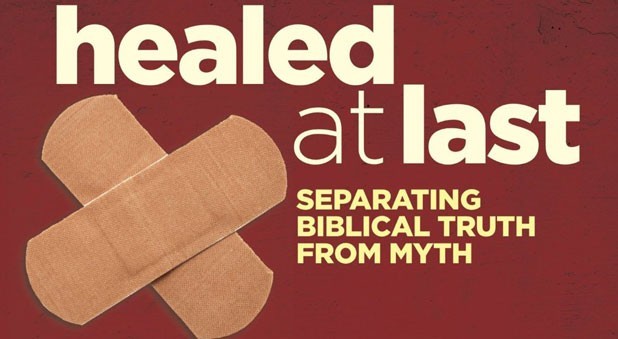Healed at Last - Separating Biblical Truth From Myth by Scott Blackwell
WARNING: Once you pick up this book you’ll find it so compelling and thought-provoking you’ll find it hard to put down (don’t say you haven’t been warned!).
At long last an evangelical has written on the topic of healing in a way that is clear, concise and honest – but more than anything else, always seeks to ask what does the Bible say about healing?
The book is not just a theological text. It begins with Scott’s own struggles with illness – both physical and emotional. Childhood meningitis has left him with a permanent limp, and he tells how Christian brothers (trying to be helpful) have asked, “You know God can heal you?” Scott’s reply is, “I have been healed”.
The book seeks to unpack the Bible’s teaching to both the question and reply. What does the Bible say about healing now? And are we limiting what the Bible says by only speaking about healing as salvation?
In doing this, Scott doesn’t tip his hat to suffering like so many other books on healing do. This book sits with suffering and the inevitable questions that all Christians, if we are honest, are confronted with.
What I found most encouraging about this book, in comparison to so much of what is written about healing, is that Scott puts God and not us at the centre: “Biblical healings are a sign, or window, through which God reveals his greater intention. Every healing is God-centred”. We are reminded
that God is sovereign in every circumstance and his love is personal for each of us. My experience has shown me that this is what suffering people long to hear.
This is more than a biblical survey of the word “healing” throughout the Bible. It’s not just an apologetic for rightly handling this pastoral topic with careful study of the Bible instead of just through the emotions. This is a book that helps the sufferer lift their eyes and see God, who is sovereign and relational, and he has saved me. Scott reminds us what all people with enduring suffering must hear: “What you are now is not who you are”. Thankfully, Scott takes us to the cross and forgiveness.
The conclusion that Scott Blackwell’s book inevitably points us to is this: it is evangelicals who should run healing ministries. In fact, evangelicals are the only safe hands to hold healing ministries.
There are others who, in the end, simply have nothing to say to those who are not healed. To them, the unhealed are simply failures. But evangelicals, on the other hand, have a message for everyone who is suffering. It is a message of God’s love, power and wisdom that shows itself in salvation, in assurance, and in care and compassion.
All of this comes from a sovereign God who cares constantly for all his people, regardless of whether they are immediately “healed” in this world or not, and God’s love is accompanied (and expressed) by support, encouragement and prayer from God’s people in this world. This is what an evangelical healing ministry looks like – in this book Scott Blackwell explains why.




















